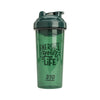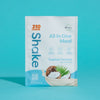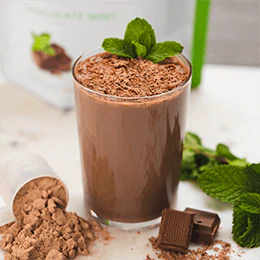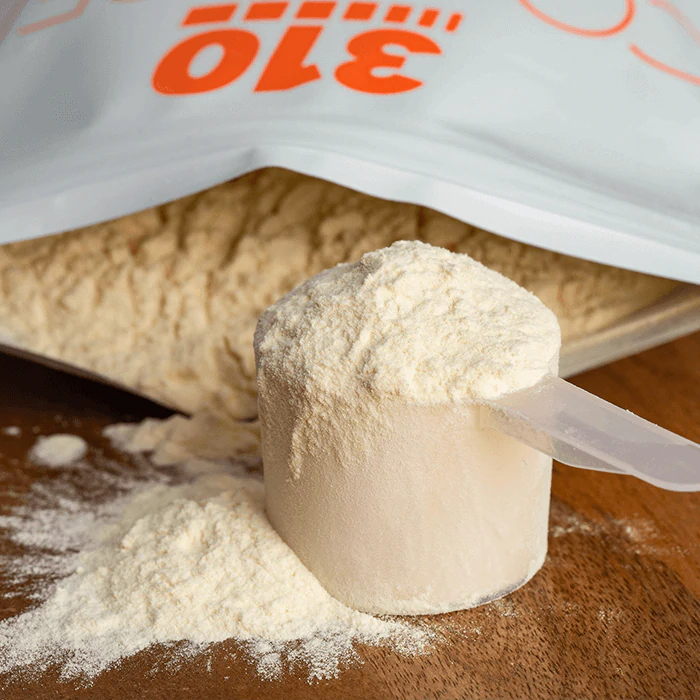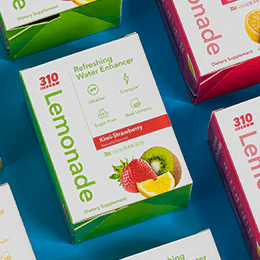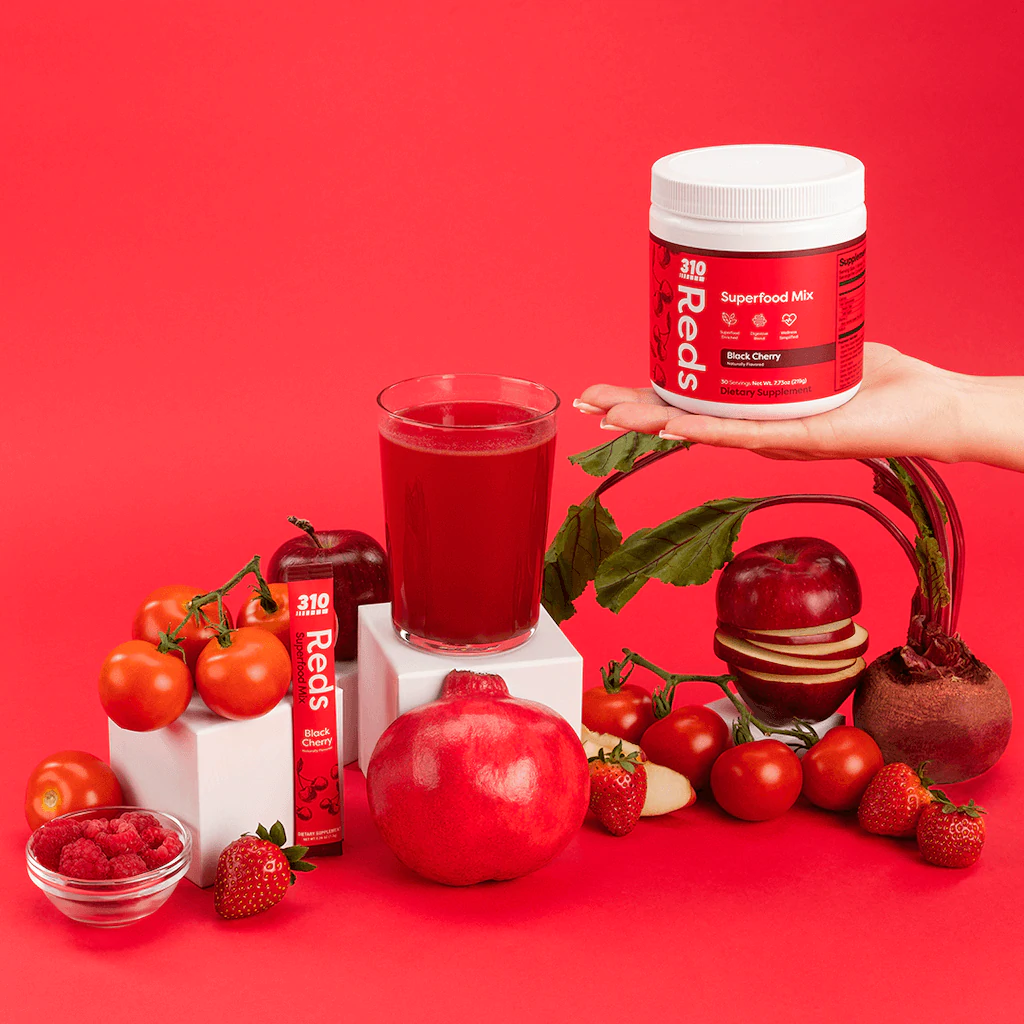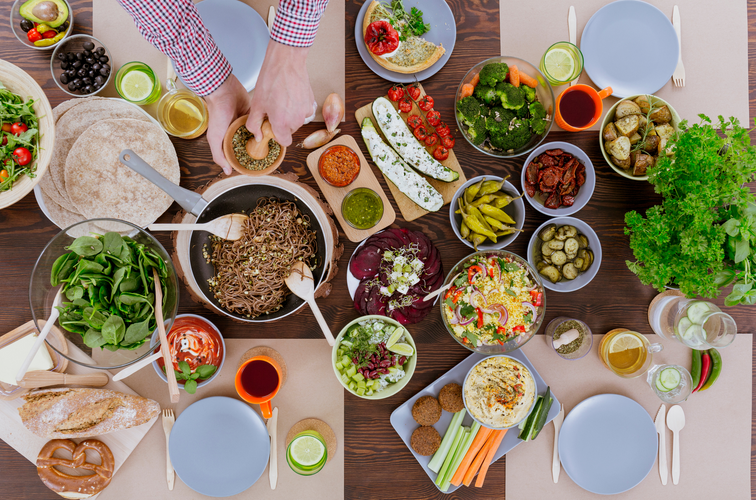If you’ve recently found yourself interested in trying a vegan diet you’re not alone! This meatless meal plan is rising in popularity, with close to 79 million vegans in the world in 2020, up from 4 million back in 2014.
Veganism is a way of life for many of those 79 million people. But is it the right choice for you?
We’ll cover all the topics you need to know about the vegan diet to make that decision and to start your healthy path to vegan success:
- What is a vegan diet?
- Is a vegan diet healthy?
- Healthy vegan foods
- Tips for following a vegan diet
- Supplements you may need on a vegan diet
Is there a way to do keto if you’re vegan, vegetarian, or eat mostly plant-based foods? Absolutely! Check out our Vegan and Vegetarian Keto Diet Guide for more information on how you can reap the potential benefits of keto while staying true to a vegan or vegetarian diet plan.
What Is a Vegan Diet?
A vegan diet involves the restriction of any food that comes from an animal source including:
- Red meat
- Poultry
- Dairy products
- Eggs
- Fish or shellfish
- Or any items (like honey or gelatin for example) made from animals
Veganism is very rarely entered into as a short-term diet. It’s more of a long-term lifestyle choice centered around reducing or eliminating our reliance on animal products. This is usually for humanitarian or environmental reasons, such as animal rights or reducing your carbon footprint. Others choose veganism to try and eat healthier or lose weight.
Is a Vegan Diet Healthy?
For a diet that involves a lot of restriction, it’s natural to wonder: is the vegan diet healthy? According to health experts, a vegan diet can be an incredibly healthy dietary choice.
However, any diet can become an unhealthy diet depending on the types of food you’re consuming. A diet loaded with refined grains, added sugars, high sodium, and zero-nutrition carbohydrates is not a healthy diet, even if you’re vegan.
But if you follow a balanced vegan diet loaded with complex carbohydrates, healthy fats, protein, and fiber then a vegan diet can be a lot healthier than a regular diet.
Research suggests that a vegan diet could help:
- Improve your heart health
- Reduce cholesterol levels
- Lower your body mass index (BMI) and help manage your weight
- Cut back on your unhealthy and saturated fat intake
- Maintain better glycemic control
A lot of these benefits come from the removal of high-fat meat and dairy products while increasing your intake of healthy fruits and vegetables.
However, if your vegan diet mainly consists of heavily processed and high-sugar foods, you’re not likely to experience these same benefits. And this could also result in unhealthy nutritional deficiencies.
Healthy Vegan Foods
As part of a healthy vegan diet, there are plenty of delicious and nutritious foods you can enjoy. These include:
- Fruit: Strawberries, blueberries, mango, oranges, apples, dragon fruit, raspberries
- Vegetables: Bok choy, spinach, kale, mustard greens, cabbage, brussels sprouts, broccoli, asparagus, mushrooms, cauliflower
- Algae: Spirulina, chlorella
- Legumes: Peas, beans, lentils
- Whole grains: Spelt, teff, brown rice, amaranth, quinoa, bulgur, oats, barley
- Nuts, seeds, and nut butter: Hemp, chia, flax seeds, almonds, cashews, sunflower seeds, peanut butter, almond butter
- Dairy alternatives: Coconut milk, almond milk, oat milk, dairy-free cheese and yogurt
- Vegetable oils: Avocado oil, coconut oil, olive oil, MCT oil
- Protein alternatives: Tofu, tempeh, seitan
You don’t need meat and dairy in your diet to get the complete nutrition that your body needs. A diet packed with these healthy food options offers a great source of complex carbs, healthy fats, fiber, protein, iron, and must-have vitamins and minerals.
Tips for Following a Vegan Diet
Cutting out all animal products from your diet is not easy, which is why it’s important to have some tips and tricks up your sleeve to make things easier:
Get Creative With Your Meals
If you’re thinking about veganism as a diet based on cutting out versus enjoying most foods then it’s time to shift your perspective. By limiting more “traditional” food sources you can start opening up your plate to more adventurous food items.
Some examples include jackfruit, mushrooms, nutritional yeast, dairy-free yogurts, cheeses, and milk, kelp and bladderwrack, and more. If you start your vegan diet with an open mind you could find yourself enjoying foods you might not have ever considered trying before.
Add in Healthy Snacks

The vegan diet can quickly become unhealthy if between healthy vegan meals you’re loading up on not-so-great-for-you snacks. As part of getting creative with your meals, it’s also important to get creative with your snacks.
Here are some ideas to get you started:
- Banana and almond or peanut butter
- Veggies and hummus
- Popcorn sprinkled with nutritional yeast
- Apples with cinnamon
- Trail mix with nuts, seeds, coconut flakes, and cranberries
- Roasted chickpeas
- Kale or dried seaweed chips
- Edamame
- Guacamole and whole wheat crackers or veggies
Discover New Recipes

Who says plant-based has to be boring or tasteless? There are so many delicious vegan websites and recipes] out there bursting with endless options for every meal.
We also have some great vegan recipes and tips right on our 310 blog! You can check out a few of them here (and just in time for the winter holidays!):
- 20+ Mouth-Watering Vegan Dinner Recipes for a Plant-Based Diet
- 5 Vegan Thanksgiving Recipes
- Vegan Thanksgiving 101: Our Top 5 Tips
- 10 Vegan Christmas Appetizers
- 10 Vegan Christmas Recipes
- 10 Vegan Hanukkah Recipes You Need To Try
Make Your Own Dish or Eat Ahead of Time

As a vegan, finding food to enjoy at parties and celebrations, or just dining out of the house in general, is not always easy. Instead of leaving parties dissatisfied or hungry, try these options instead:
- Make or bring your own vegan dishes to the party for others (and yourself!) to enjoy. Hint: use those new vegan recipes we shared above!
- Eat a healthy vegan snack or meal replacement shake before you leave.
- If you’re eating out, check the menu ahead of time to make sure there are options for you.
That way you either know you have an option to eat when you get there or you ensure you’re not ravenous once you arrive.
Start Slow
The vegan diet is not always easy to transition into, especially if your diet today consists of dairy or meat products. Diving headfirst into the vegan diet can lead a lot of new vegans down a very hungry and nutritionally deficient path. Instead, it might be wise to start with a more gradual approach or opt for a less strict vegetarian diet.
Here are some options to consider:
- Vegetarian: Vegetarians are like vegans but less restrictive. They don’t eat meat, poultry, or fish but do eat eggs, dairy, and other products that come from animals.
- Pescatarian: This is a vegetarian diet only they do eat fish.
- Flexitarian: If you’re interested in trying vegan or vegetarian a few days a week but not 100% of the time then a flexitarian, or more flexible plant-based diet, could be a great place to start.
- Chicketarian: Although not an officially recognized diet, a lot of people choose to cut out only red meat from their diet while enjoying poultry such as turkey or chicken.
Keep in mind that you don’t need to start any kind of diet to adopt a healthier eating mindset. Channel your inner vegan by making more of your meals centered around the fruits, vegetables, and legumes on your plate. Or try a meatless Monday routine where you skip out on meat one day a week.
Even if you aren’t choosing a vegan or vegetarian diet, a little less meat can go a long way for your health.
Add Extra Protein and Nutrition With a Vegan Meal Replacement Shake
Cutting out meat from the diet means you have to get a bit creative with your protein sources. While a good amount of your protein can and should come from the healthy foods listed above, it helps to have additional protein supplementation through a vegan meal replacement shake, like 310’s Vegan and Organic Shake.
The shake you choose should have an optimal amount of protein, fiber, superfoods, and probiotics. It should also be low in sugar and artificial sweeteners. A healthy meal replacement shake can help supplement any nutritional deficiencies while keeping you full and satisfied throughout your day.
Supplements You May Need on a Vegan Diet

With a healthy and well-rounded diet, vegetarians and vegans should be able to get all the nutrients that they need. Yet, many find that it is helpful to have a few supplements in the diet to maintain optimal health and ensure you aren’t experiencing any nutritional deficiencies.
Common nutritional deficiencies for vegans and vegetarians include:
- Protein
- Vitamin D
- Omega-3 fatty acids
- Vitamin B12
- Iron
- Zinc
- Calcium
- Riboflavin
If you’re worried about nutritional deficiencies on a vegan diet you can talk to your doctor and have them test your nutrient levels. This will help you identify which vitamin and mineral supplements you should add to your diet or any changes you should make to your eating habits.
Protein

Health benefits: Protein not only helps keep you feeling full throughout the day, but it also powers all the chemical reactions in your body.
Foods containing protein: Every vegan or vegetarian has to answer this same question over and over again: “But how can you get enough protein?” And the answer is that there are so many options to choose from other than meat! Not only do vegetables including broccoli, spinach, and brussels sprouts contain high levels of protein but there’s also seitan, tempeh, chickpeas, beans, lentils, whole grains, nuts, seeds, oats, and more.
Recommended supplement: 310 Organic and Vegan Shake
Vitamin D
Health benefits: Vitamin D, also known as the “sunshine vitamin” is an important nutrient that we get from certain foods, and also a hormone our bodies make in response to the sun. It’s critical for bone health and supporting a strong immune system.
Foods containing Vitamin D: Most foods that contain vitamin D are from animal sources such as fatty fish or fortified milk. This is why many vegans and vegetarians tend to lack this nutrient.
Recommended supplement: 310 Multivitamin or 310 Beauty Melt
Omega-3 Fatty Acids
Health benefits: Omega-3 fatty acids like DHA and EPA are essential for a healthy brain, heart, and eyes and help prevent inflammation in the body.
Foods containing omega-3 fatty acids: Fatty acids are mostly found in fatty fish and eggs. However, you can also get them through vegan-friendly options including flaxseed, chia seeds, pumpkin seeds, hemp seeds, walnuts, vegetable oils, and some leafy green vegetables.
Recommended supplement: 310 Black Cumin Seed Oil
Vitamin B12
Health benefits: Dubbed the energy vitamin, B12 is responsible for transforming what you eat into usable fuel. It’s also vitally important to the inner workings of your brain, nerves, nervous system, blood cells, and DNA.
Foods containing vitamin B12: This nutrient is mainly found in animal-based foods including meat, fish, and dairy. This puts vegans and vegetarians at a higher risk for deficiency. But you can often find foods such as breakfast cereals or dairy-free milk alternatives fortified with vitamin B12 for extra supplementation.
Recommended supplement: 310 B12 Melt, 310 Multivitamin, or 310 Greens Blend with Juice Berry
Iron

Health benefits: Health benefits: Your body uses iron to make hemoglobin – a protein in red blood cells that carries oxygen from the lungs to other parts of the body. Iron is also important for immune health since hemoglobin helps the body fight disease by providing oxygen to damaged cells, tissues, and organs.
Foods containing iron: There are two different types of iron: heme and nonheme iron. Heme iron comes from animal proteins (such as meat, poultry, and seafood). Nonheme comes from plant sources, including legumes, nuts, and leafy greens. You can also find iron-fortified food products such as breakfast cereals and bread.
Recommended supplement: 310 Greens Blend with Juice Berry
Zinc
Health benefits: Zinc is essential for proper immune function, processes of growth and development, DNA synthesis, protein synthesis, enzymatic reactions, and gene expression. Your body can't produce it naturally, so you have to get it through your diet.
Foods containing zinc: Red meats, poultry, and oysters contain the highest levels of bioavailable, or easily absorbed, zinc. Other good food sources include beans, nuts, crab, lobster, whole grains, fortified breakfast cereals, and dairy products (yogurt, milk, cheese). Given many sources of zinc come from dairy or meat-based products, this puts vegans and vegetarians at a higher risk for zinc deficiencies.
Recommended supplement: 310 Multivitamin or 310 Vitamin C Powder
Calcium
Health benefits: Calcium is critical for good bone, heart, muscle, and nerve health throughout your life. It also helps circulate blood, move muscles, and release hormones. If you don’t get enough of this nutrient from your diet, your body will take it from your bones.
Foods containing calcium: Some of the best calcium-rich foods include cheeses, milk, yogurt, seeds including chia and poppy, beans and lentils, almonds, salmon, shrimp, leafy greens like broccoli, rabe and kale, oranges, and figs. You can also find calcium in fortified foods like bread, cereal, orange juice, and plant milk.
Recommended supplement: 310 Multivitamin
Riboflavin
Health benefits: Riboflavin, also known as vitamin B2, is an essential, water-soluble vitamin. It’s important for the growth, development, and function of cells, and is instrumental in helping you turn the food you eat into usable energy.
Foods containing riboflavin: Riboflavin is mostly found in meat and fortified foods, though you can also find it in some other foods as well including eggs, dairy, nuts, spinach, and salmon. It’s not as common to have a riboflavin deficiency, but vegans and vegetarians would be most at risk given that it’s most commonly found in meat products.
Recommended supplement: 310 Multivitamin
Other supplements that go a long way in helping you reach your goals on a vegan diet include probiotics for great gut health, digestive enzymes to assist with nutrient absorption, and green juice powder for extra nutrients and beneficial fiber. For more information on these essential nutrients and more check out our Complete Guide to Essential Vitamins and Minerals.
Summing It Up: Will a Vegan Diet Work for You?

The bottom line is that a vegan diet can be a healthier choice if you do it right. Make sure you take the time to seek out well-balanced and nutritious food options, recipes, and supplements to ensure you’re staying healthy as you embark on this new journey. And remember that you can always start slow or opt for a less restrictive vegetarian or pescatarian diet to get started.
To help you along on your new vegan journey make sure to check out our 310 supplements, nutrient-packed vegan protein powder, recipes, and more. And check back often on our 310 blog for more articles and resources on how to make a vegan diet work for you!
Sources
- https://thevou.com/lifestyle/2019-the-world-of-vegan-but-how-many-vegans-are-in-the-world/
- https://www.webmd.com/diet/vegan-diet-overview#1
- https://www.nhs.uk/live-well/eat-well/the-vegan-diet/
- https://wa.kaiserpermanente.org/kbase/topic.jhtml?docId=abq2485
- https://www.healthline.com/nutrition/vegan-diet-guide
- https://pubmed.ncbi.nlm.nih.gov/26164391/
- https://pubmed.ncbi.nlm.nih.gov/25592014/
- https://www.ncbi.nlm.nih.gov/pmc/articles/PMC4890770/
- https://www.ncbi.nlm.nih.gov/pmc/articles/PMC4380801/
- https://www.ncbi.nlm.nih.gov/pmc/articles/PMC4845138/
- https://www.ncbi.nlm.nih.gov/pmc/articles/PMC4359818/

